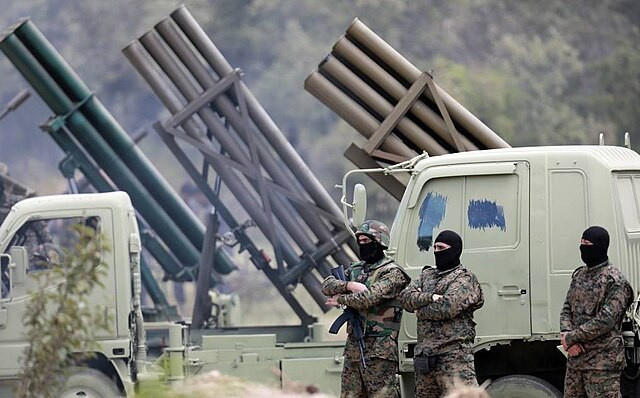Hostilities between Israel and Hezbollah have escalated significantly in recent weeks, creating a precarious situation that both sides acknowledge could lead to full-scale war. Despite a relative decrease in missile exchanges, the region has been marked by a sharp increase in threats and aggressive posturing. Hezbollah's leader, Hassan Nasrallah, has issued stark warnings, stating that the group is prepared to invade northern Israel if war breaks out. He also hinted at new weapon capabilities, though he reiterated that Hezbollah does not seek a full-scale conflict and is primarily supporting Hamas in Gaza.
Nasrallah's recent statements were underscored by Hezbollah releasing drone footage of Haifa, showcasing both civilian and military targets. This act of psychological warfare aimed to caution Israel against escalating the conflict. In response, Israel's Foreign Minister, Israel Katz, warned that Israel is nearing a decisive point where it might alter its approach to Hezbollah and Lebanon, stating, "In an all-out war, Hezbollah will be destroyed and Lebanon will be severely hit."
Preparations for Conflict
Israel's military has confirmed that operational plans for a potential offensive in Lebanon have been approved and validated. The Israeli Defense Forces (IDF) have been conducting regular air and artillery strikes in response to Hezbollah's actions, which have included over 2,100 military operations against Israel since early October. The IDF's Northern Command, led by Ori Gordin, has increased troop readiness and is prepared for ground assaults if necessary.
Both Israel and Hezbollah recognize the catastrophic potential of an all-out war. Such a conflict would not only devastate the immediate region but also risk involving their respective backers, the United States and Iran. However, the current dynamics are pushing both sides closer to the brink, with significant civilian displacement already occurring. More than 90,000 people in Lebanon and over 60,000 in northern Israel have been forced to flee their homes due to the ongoing skirmishes.
Public Sentiment and Political Pressures
Public sentiment in Israel is increasingly hawkish, with a recent poll by the Jewish People Policy Institute indicating that over 60% of Israelis support a decisive military strike against Hezbollah. This sentiment has grown amidst the backdrop of the ongoing war in Gaza and the perception that a comprehensive defeat of Hezbollah is necessary for the security of northern Israel.
The Israeli government has been increasing its military capacity in anticipation of potential escalations. The cap on reservists has been raised to 350,000, and extensions to reserve duty age limits are being considered. Prime Minister Benjamin Netanyahu, facing pressure to restore calm and assert security, sees strategic benefits in continuing both conflicts to weaken Hamas and Hezbollah simultaneously.
Diplomatic Efforts and Regional Implications
The United States is actively working to de-escalate the situation. White House envoy Amos Hochstein has been shuttling between Lebanon and Israel, emphasizing President Joe Biden's commitment to preventing a broader war. "We have seen an escalation over the last few weeks. And what President Biden wants to do is avoid a further escalation to a greater war," Hochstein stated during his visit to Beirut.
Despite these efforts, the path to a diplomatic resolution remains fraught with challenges. Hezbollah has tied its actions to the situation in Gaza, demanding a halt to Israel's invasion there as a condition for ceasing its attacks. This linkage complicates any potential ceasefire, as the conflicts in Gaza and Lebanon are deeply intertwined in the current geopolitical landscape.




